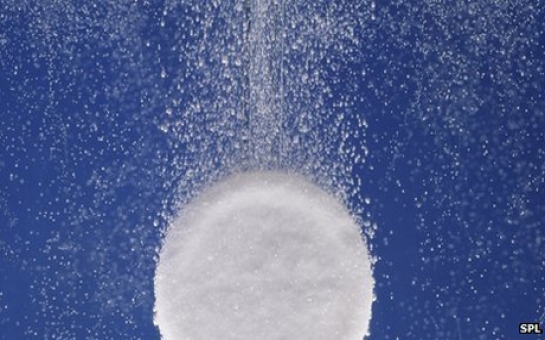Follow us !
Salt in medicines 'poses a health risk'
Society
22:09 | 27.11.2013

Salt in medicines 'poses a health risk'
Soluble painkillers used by millions of people in Britain could pose a health risk because they are high in salt, UK researchers are warning.Some formulations taken at maximum dose tip users over the recommended daily sodium intake for an adult, with potentially dangerous consequences, the study authors say, BBC reported.Their work in the BMJ looks at the outcomes for 1.2 million UK patients.It found a link between effervescent tablets and heart attacks and stroke. Compared with patients taking the same drugs without salt, those who regularly took effervescent or soluble medications increased their risk of having a heart attack, stroke or dying from a vascular cause by a fifthThey were also seven times more likely to develop high blood pressure or hypertension, which the researchers say is at the root of the problem.Lead researcher Dr Jacob George, from Ninewells Hospital in Dundee, said: "We know that high salt causes hypertension and that hypertension leads to stroke."The British Heart Foundation said it was important to remember that the research applied to people who were taking these medicines every day - it did not mean that occasional use could damage your heart health.Hidden saltMany effervescent medicines contain salt. This is because in order to fizz and dissolve, they contain a substance called bicarbonate, which is often combined with sodium.The study looked at 24 different prescribed effervescent medicines, including common painkillers such as paracetamol and aspirin, as well as supplements.But Dr George said many more people bought these types of treatment from chemists, without a prescription.He said people needed to be aware of the risks and that drug manufacturers should look at cutting the salt content of their products.In the study, sodium levels in tablets ranged from as low as 3mmol to as high as 18mmol - approximately a fifth of a teaspoon.The recommended sodium intake for an adult in the UK is 104mmol per day.A person who takes the maximum daily dose of eight tablets of soluble paracetamol, for example, would ingest 148.8mmol of sodium, which exceeds their daily salt allowance.If you then took in to account the dietary salt a person was likely to get from the food that they ate, their overall salt intake could be dangerously high, said Dr George.The Medicines and Healthcare products Regulatory Agency (MHRA) said it kept a close check on the safety of all licensed medicines."We will carefully review the findings of this new research," said a spokeswoman.All medicines that contain at least 1mmol (or 23mg) of sodium - a component of salt - in each dose are required to declare on their labelling that the product contains sodium.The accompanying patient information leaflet provides information on the quantity of sodium and includes a warning to patients on a low-sodium diet to take the amount of sodium in the medicine into account."We recommend that people with questions about their salt intake should read the patient information leaflet and speak to their GP," the MHRA said.But Prof Gareth Beevers, of Blood Pressure UK, said many consumers would be unaware of the risks."It is extraordinary to think that sodium has been hiding in our medicines all this time."Without clear labelling on these products, it is impossible to know how much additional sodium you would be eating, so it is shocking to find you could be having more than your daily maximum from medicines alone."Eating too much sodium - in any form - puts up our blood pressure, which puts you at increased risk of strokes and heart attacks, the biggest killers in the world."ANN.Az










